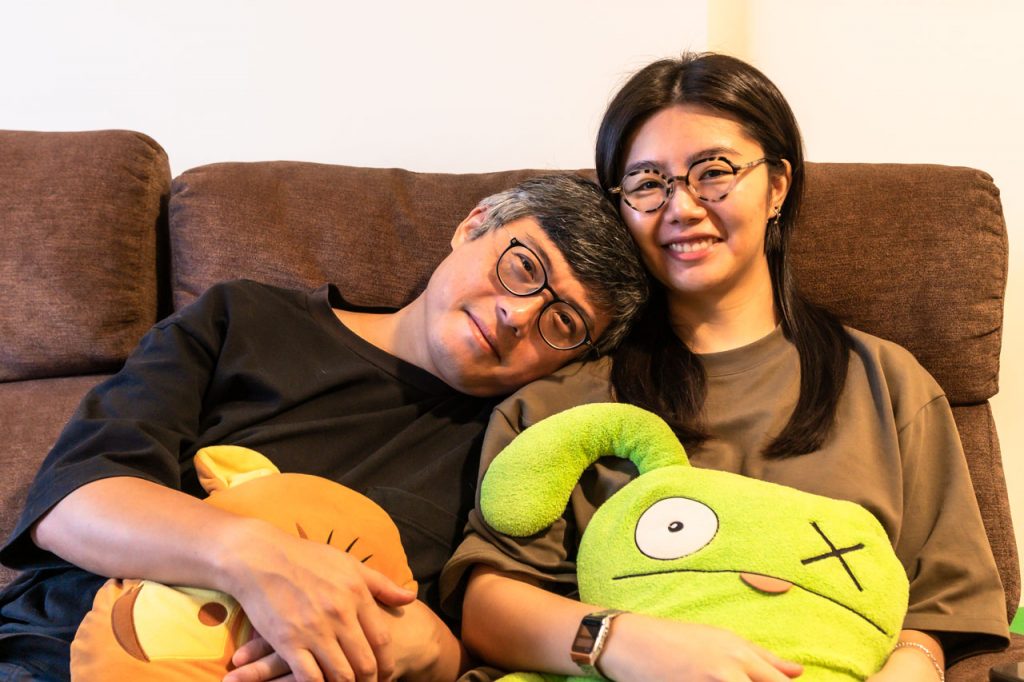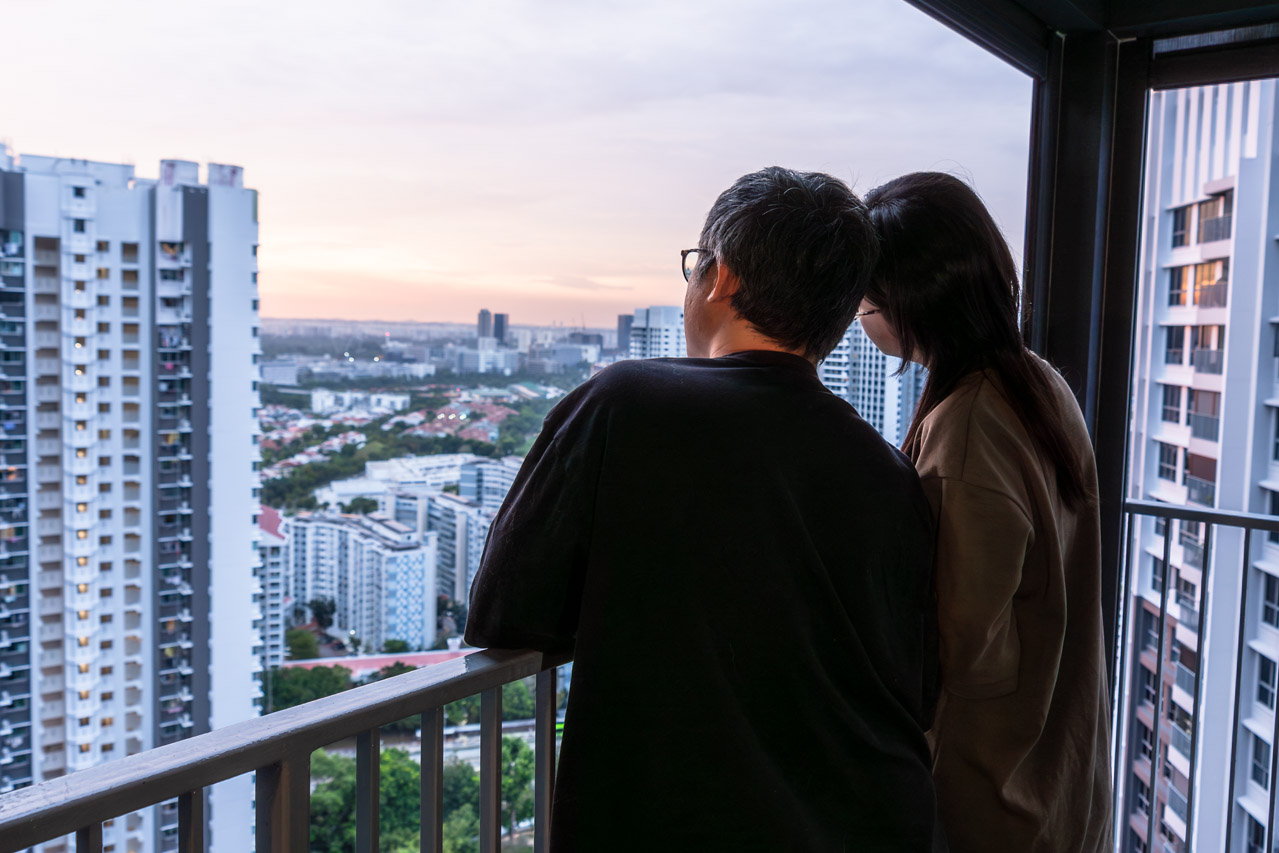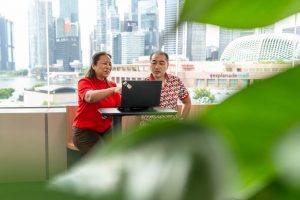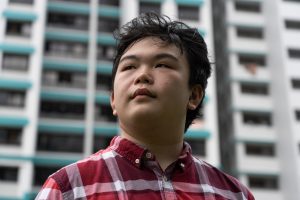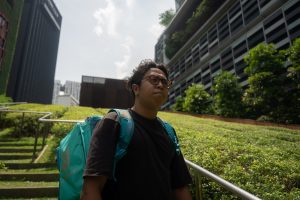All images by Nicholas Chang for RICE Media.
We’re all familiar with The Singapore Dream: an inescapable connotation that goes hand-in-hand with the infamous 5Cs. The 5Cs (cash, car, credit card, condominium and country club) used to be the be-all and end-all for Singaporeans.
But many millennials in today’s workforce have other plans.
While many agree that the pursuit of such archetypes has lost relevancy, we’re still left with undeniable realities: amongst others, the rising cost of living and skyrocketing inflation. HDB sends me a regular loan statement to remind me that I can’t quit my job; the sharp hike in GST has made the pinch of eating out a lot more painful.
Thousands of us squeeze into MRT trains at peak hours mainly because we’ve chosen to avoid the hefty loans that come with vehicular ownership. Yet, we still find ourselves left with little after paying for this and that in our pricey metropolis.
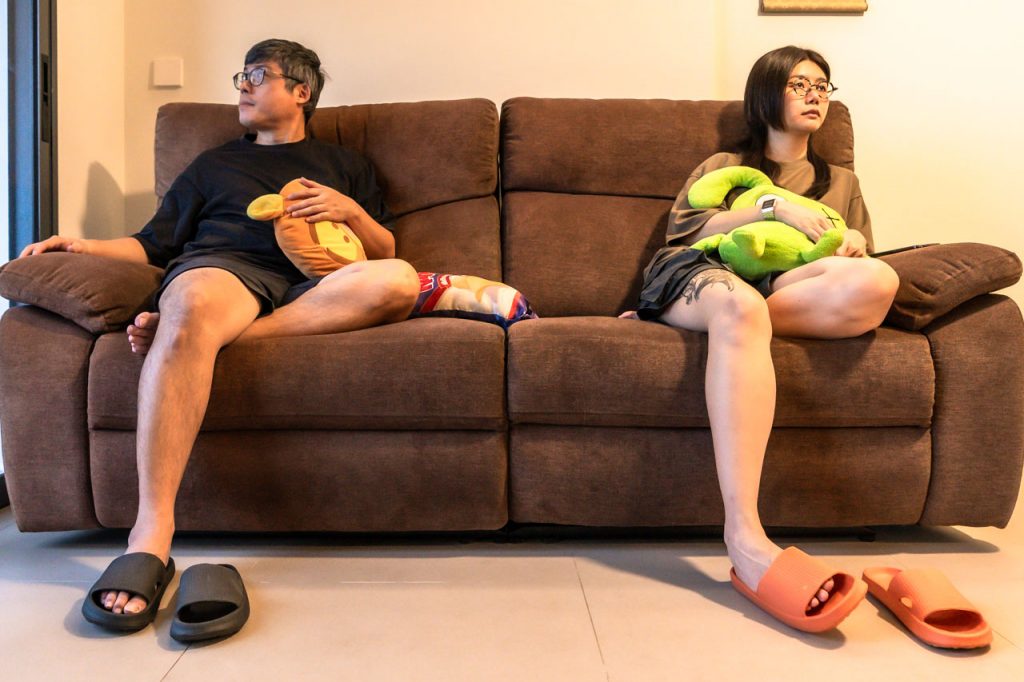
For some of us, our escape plan from the hamster wheel involves investing in stock or crypto. For others, the road to retirement and financial freedom is paved with savings—the key, we believe, is to buy a second property for renting out, supplying us with a sustainable passive income.
Or, perhaps, you might cross your fingers that your side hustle takes off and blooms into a main money-making priority.
If I just looked around, might I notice a better plan right under my nose? I took a breather from the rat race and surveyed what my financially free friends were doing.
I noticed that many of them had simply chosen not to have children.
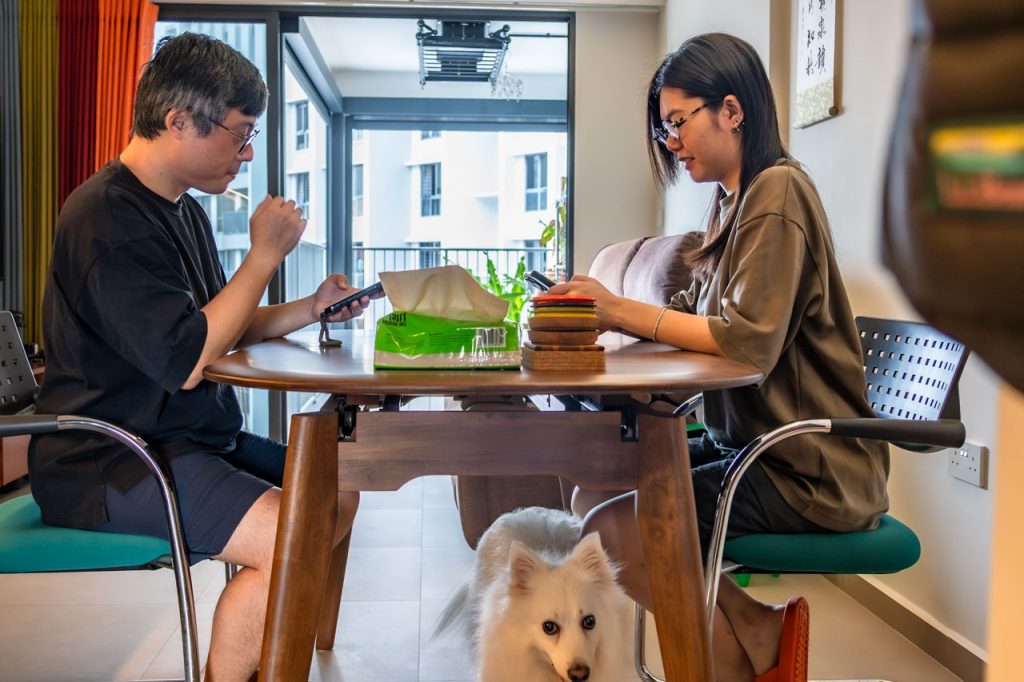
Not As Simple as You DINK
An old acronym for childless working couples recently saw a resurgence thanks to TikTok. DINK stands for double income, no kids. And there are more such couples now than ever before.
Many firmly defend their life decision with cold hard facts and figures when confronted by their elders, who may turn up the heat based on how much they want a grandchild in their lives.
I’m close friends with a DINK couple, but I’ve never broached this topic with them before. I want to learn more about this deliberate, calculated choice.
The Singapore Resilience Study, for one, measures the resilience level of citizens, married or otherwise, through four key tenets: mental resilience, financial resilience, social resilience, and physical resilience. Does the DINK life fulfil some, if not all, of these?
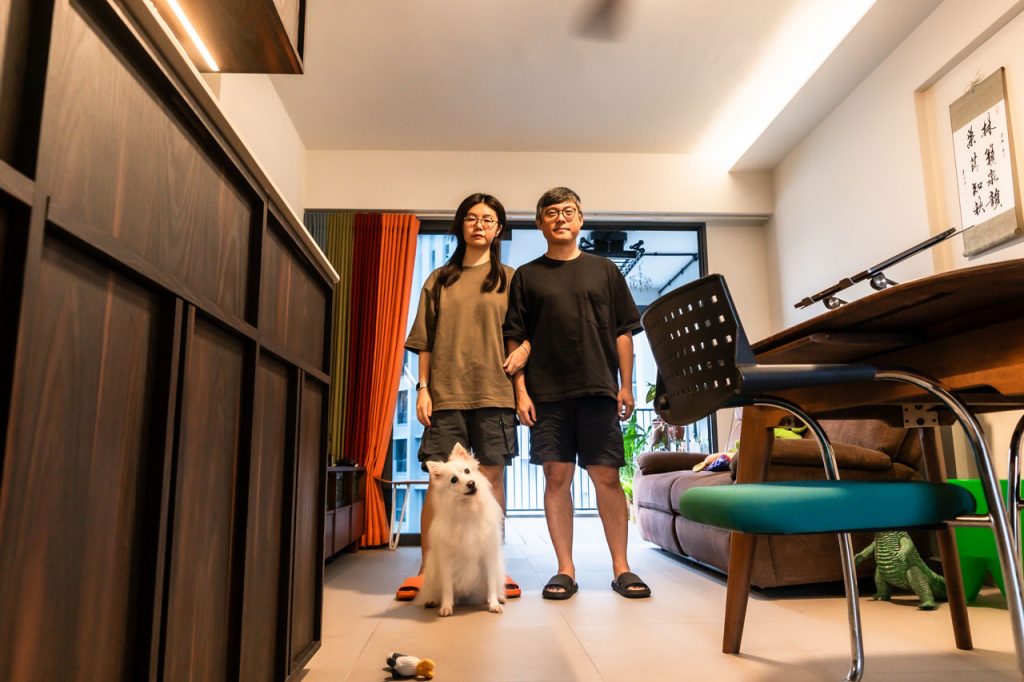
What considerations and financial planning does the DINK lifestyle involve, and do we need to be aware of any misconceptions? Many Singaporeans have traded the joy (and misery) of parenthood for a greater chance of financial certainty.
Yet, the DINK life isn’t all rainbows and sunshine, either. Choosing the DINK path may ensure greater time for yourselves and each other, but there are future challenges that can be a strain on any married couple.
“We didn’t plan to live the DINK lifestyle, it just happened,” explains Cain Lim, 44, husband to Rebecca Yip, 32.
They live happily in a four-room HDB flat with an affectionate dog named Kotton. Cain works as a lecturer in a private school and Rebecca works as a designer in the tech industry.
On the side, she carries out restorative treatments for skin trauma patients in her own paramedical studio, Butte.sg. After CPF deductions (sans kids-related bills), Cain and Rebecca find themselves with a decent amount of savings and disposable income—the latter of which they use to indulge in vacations and nice meals.
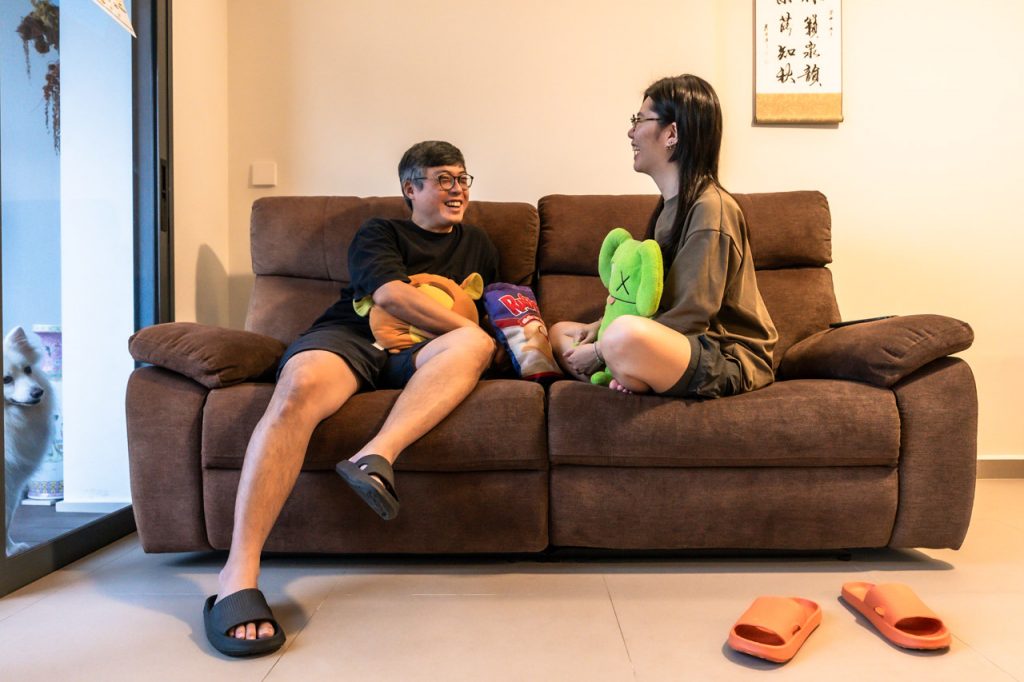
“We like exploring different cuisines,” Rebecca declares.
The couple likes to spend their disposable income at new eateries and had booked a table at Mama Diam, a modern fusion speakeasy hidden behind the facade of a corner shop, to celebrate their wedding anniversary and Cain’s birthday.
Cain and Rebecca did not specifically aim for the DINK life but figured they would just go with the flow—to see what life has to offer them.
They emphasise, however, that financial obligations haven’t magically gone away. DINK life has lightened their yoke, but they have had to game plan their finances differently.
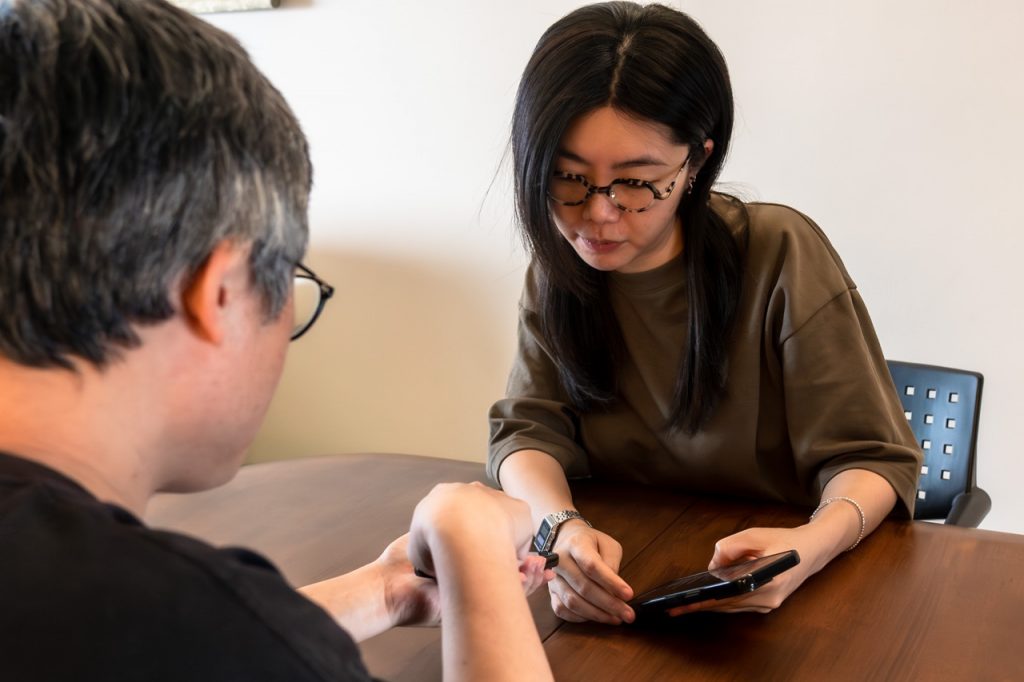
DINKs Have Big Bills Too
It’s important to clarify that being a DINK doesn’t equate to ‘hakuna matata’. Cain reminds us, saying, “If I lose my job, that will still be of some concern.”
Cain shares that he still has bills and daily expenses to foot. They paid a premium for their HDB apartment, which is located in a highly desired neighbourhood, and both Cain and Rebecca contribute part of their monthly salaries to paying off this home loan.
When it comes to dependents, Cain and Rebecca consider themselves very fortunate that their parents enjoy good health.
“We don’t have to stress about his or my parents because they all have enough money to get by,” reveals Rebecca. “Maybe for Kotton though, we are saving up for rainy days, so that we can be prepared if anything happens to her. She had stones in her bladder recently, and we paid more than $2,000 to remove those stones.”
Rebecca discloses that Kotton is also experiencing the early stages of cataracts, and if her condition worsens, she might have to undergo a $10,000 surgery to keep her sight.

The couple enjoy financial peace of mind, so might they have any tips for others?
“I have this practice that doesn’t really affect my finances much anymore because all our big-ticket items have been bought,” says Cain.
“My practice is I save at least three times the cost of an item that I want to buy, before I buy it. I’ve always been disciplined about this, and it has helped me stow away a reasonable amount of money for a rainy day.”
Besides this, Cain admits that he is like many other Singaporeans who “save as much as they can”. Rebecca chimes in that they enjoy both a comfortable life and financial security because they don’t splurge.

Strategising for the Circle of Life
Just like many of us, the main consideration of Cain and Rebecca’s financial plan is today’s rising inflation and uncertainties.
“The job market right now is volatile too, which has influenced my saving and spending habits. Save for a rainy day, so that if you lose your job, you won’t be too worried—that’s the thinking that many locals have.”
“I feel stable and prepared for rainy days, but I think through my purchases nonetheless,” Rebecca remarks.
“I’m blessed to have a job at a company that doesn’t give me many problems. The benefit of being stable and content is that I can project how I see myself in the future and plan my savings and spending accordingly.”
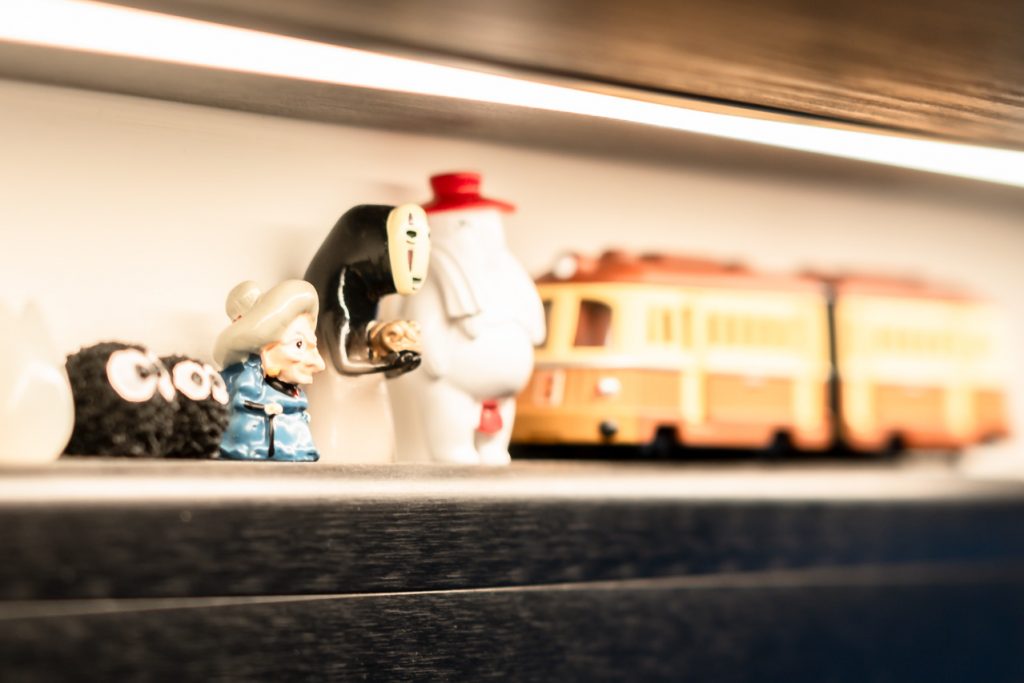
These harsh realities also influenced the couple’s decision to have a small and intimate wedding, free of the pomp and opulence that comes with a five-digit bill.
“We cared more about the company we invited to our wedding,” says Rebecca.
“In general, we don’t see our relatives often, so we didn’t see the point of inviting too many of them. We like the idea of a wedding as an intimate affair, so we had a small one and only invited people who are constants in our life.”
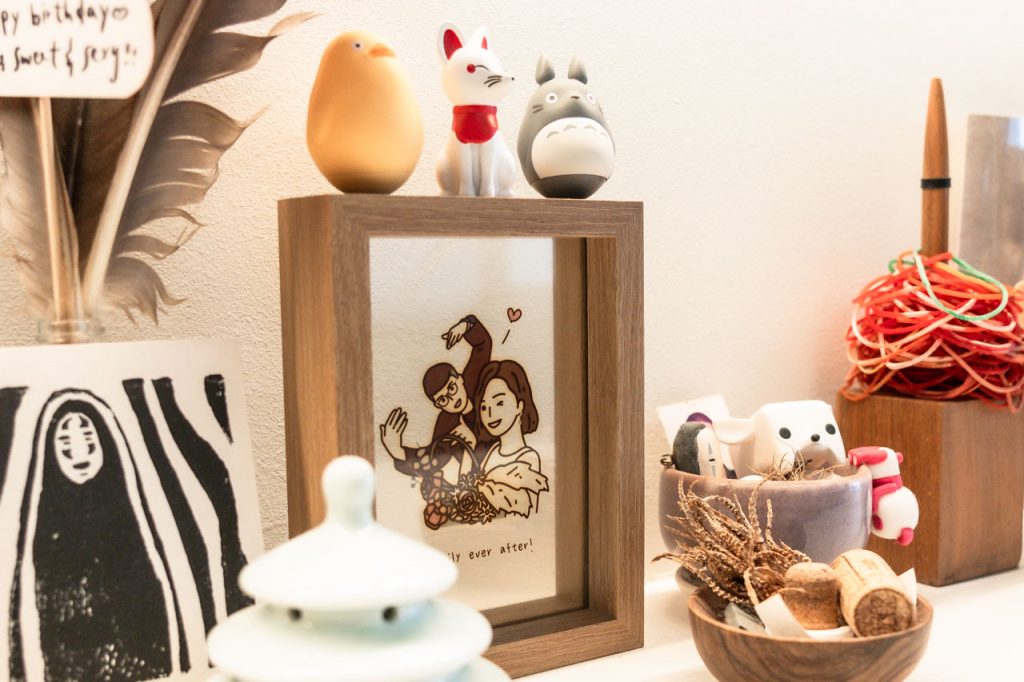
“Many Singaporeans want to spend money on a big expensive wedding, in order to show how financially stable they are, but that defeats the purpose because these couples might then start a life together with huge debt.”
Cain considers himself a thrifty sort of spender and is a self-professed “excessive saver”, while Rebecca reveals that she is not impulsive with her finances either.
“I think I am financially resilient because of my spending and saving habits. I’m also a bargain hunter—I always go out of my way to find the best deal for everything. Bargain hunter plus excessive saver equals financially resilient,” he says, belting out a hearty laugh.
Despite this thrifty approach, skyrocketing inflation can still give thrifty DINKs like Cain frown lines.
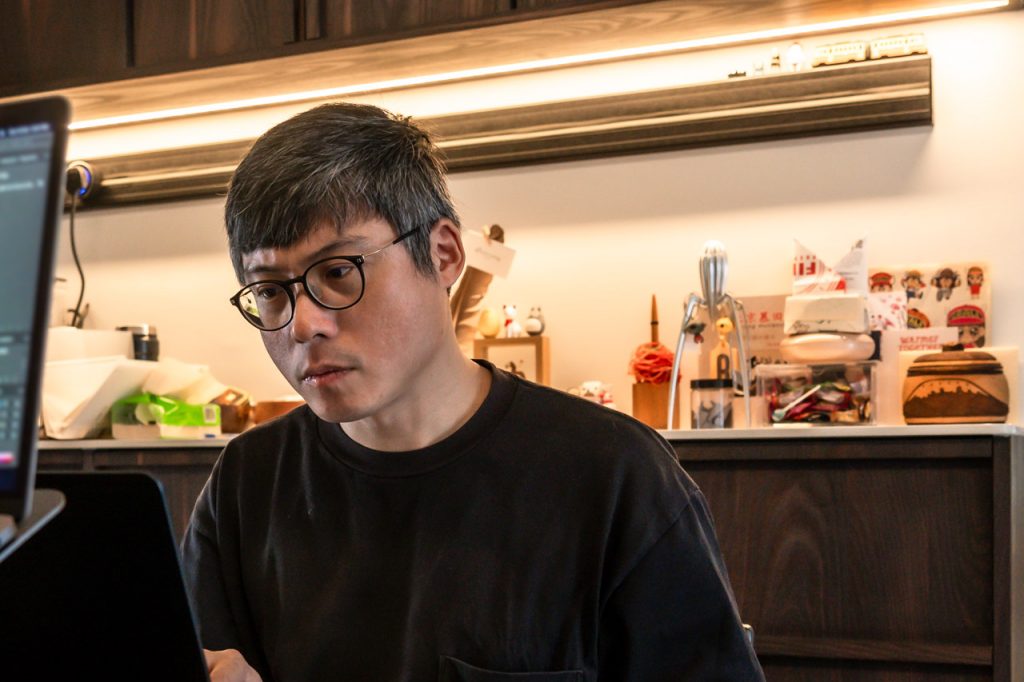
“Rising costs of living and healthcare are still a cause of worry for Rebecca and me, so we have started discussing how to multiply our savings,” he divulges.
“If inflation makes another jump, we will have no choice but to treat ourselves to luxuries, like premium produce or expensive restaurants, less often.”
As medical technology advances, the couple also acknowledge that they might live much longer than they expect. So, Cain and Rebecca have started reading up on investment and generating passive income, just in case they are blessed with long lives.
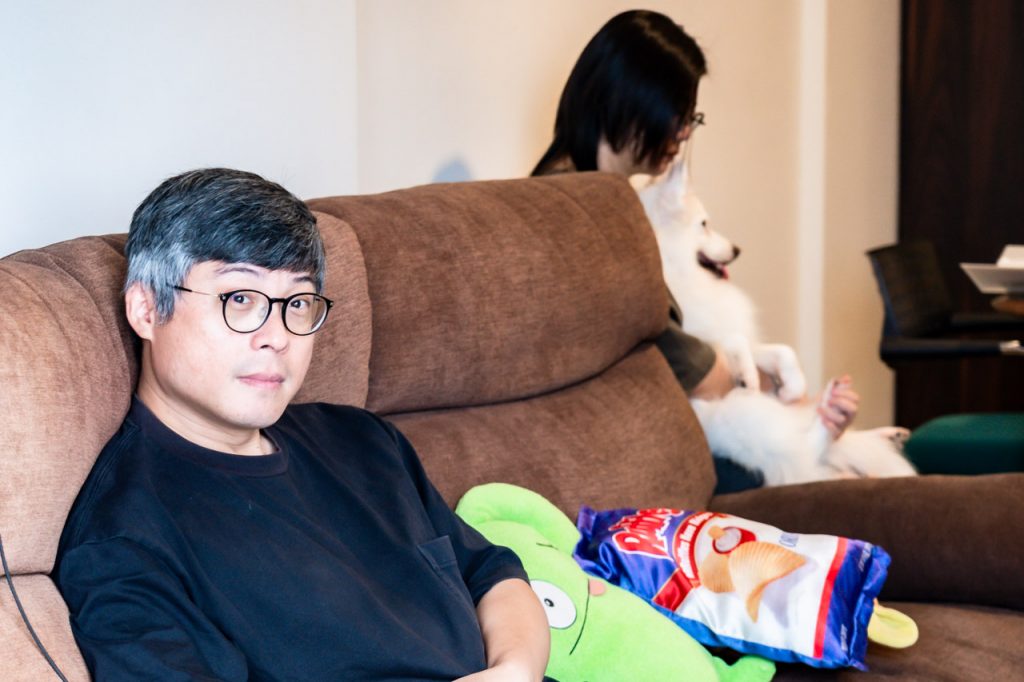
Game-changing Bundle of Joy
Another harsh reality of Asian life that we grapple with is these child-expectant elders. Older Singaporeans might not understand that the decision to be a DINK is not a selfish one but rather one that arises from circumstance and practicality.
If Cain and Rebecca were to find themselves expecting a child, they would readily welcome the baby into their lives.
“I think we’d still feel financially comfortable if we had a child. A child coming into the picture will not change our financial situation much because I feel like we’re doing fine right now and have enough for us. However, we are not leading a feasible lifestyle for welcoming a child right now, so we would have to change that if we did welcome a child.”
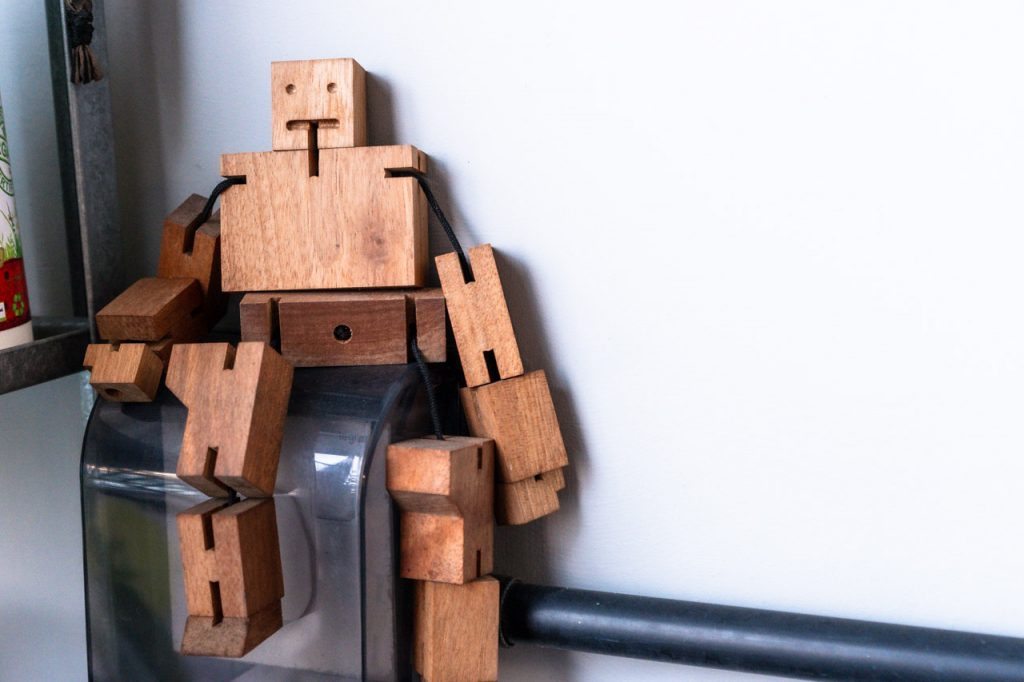
Comprehending and Achieving Resilience
According to findings in the Singapore Resilience Study by Income Insurance and Singapore Management University’s Centre for Research On Successful Ageing, singles have been noted to be less resilient socially and financially.
In this vein, DINKs who enjoy the support of a spouse are likely to be more resilient.
The study also notes: “Financial literacy was also found to contribute directly to well-being, as well as indirectly through the direct development of resilience and indirect impact on resilience through insurance coverage… Further, with the ability to make financially savvy decisions, individuals are better able to accumulate the means to cushion themselves against unforeseeable financial difficulties, and thus, develop greater financial resilience.”
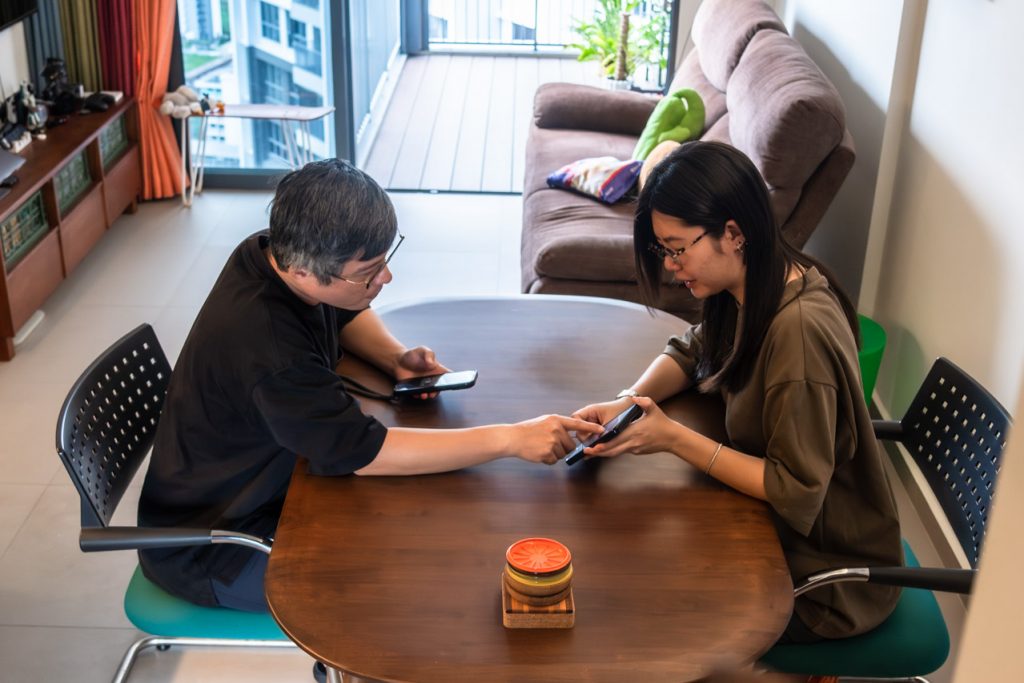
“To me, every couple will have their own way of planning for the future—what might have worked for us might not work for others,” Rebecca feels. “In general, it’s important to be mindful and spend responsibly.”
Cain feels that he and Rebecca are still learning along the way and don’t have any ideal tenets that other couples can follow.
“In terms of financial literacy, I am not the ambitious type, and I don’t go looking for what might be the next big money spinner,” he says.
“Our approach is safer. We want to invest in one thing at a time and see how each mode grows our wealth.”

Holders of accident and hospitalisation insurance policies, Cain and Rebecca are now considering critical illness and life insurance plans too, which can provide for this DINK couple in their old age, especially if they become less mobile with age or if one person passes first.
“Critical illness and life insurance plans are good financial strategies, but we need to make more before we can afford those premiums, so we are just saving and relying on our savings for now,” says Cain.
They profess that, like many other Singaporeans, they are counting on their HDB flat as a fallback asset.
“If one of us goes first, the other can rent out our flat as a source of income.”
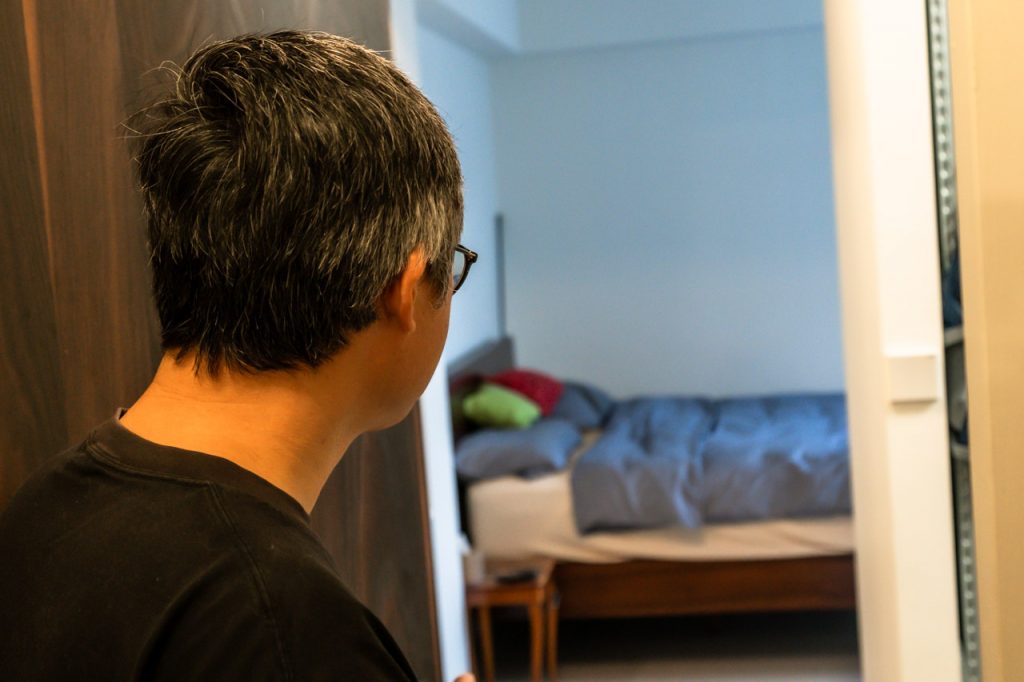
School Yourself
If you’re hoping that not having children is the solution to your financial woes, you might have come to realise that early retirement is not on the cards for many DINKs either, who face their own financial challenges.
Picking the brains of DINKs like Cain and Rebecca did not sell me on the DINK lifestyle as much as they did open my eyes to the paramount importance of financial literacy. The couple shared that they save and spend prudently and can’t escape from having conversations about sobering topics like illness and ageing.
The DINK lifestyle’s financial advantages and a sense of freedom might have been glorified by TikTok, but it is not without its challenges. As exemplified by this couple, this choice reflects a pragmatic response to the pressures of modern living in Singapore.
Their experiences underscore the importance of strategic planning, reminding us that the path to financial resilience requires careful consideration, regardless of whether one has children.
Ultimately, as Singaporeans navigate the complexities of the “Singapore Dream,” embracing informed financial habits and adaptability will be crucial in achieving stability and peace of mind in an ever-changing economic landscape.
